Related Research Articles

The Datsuns are a hard rock band from Cambridge, New Zealand, formed in 1998. Founding mainstays are Rudolf "Dolf" de Borst on vocals and bass guitar, and Christian Livingstone and Phil Somervell, both on guitar. They have released seven albums, with their debut self-titled album from October 2002 peaking at no. 1 in New Zealand and reaching the top 20 on the United Kingdom's Official Charts. They had relocated to London in 2002. Their second album, Outta Sight/Outta Mind, appeared at no. 7 in New Zealand and top 60 in the UK. Smoke & Mirrors (2006) peaked in the top 20 in New Zealand. Early drummer Matt Osment was replaced by Ben Cole after that album. Their top 40 singles in the UK are "In Love" and "Harmonic Generator". In New Zealand, their highest-charting single, "Stuck Here for Days" (2006), reached the top 30.

Evermore were a rock band formed in Feilding, New Zealand, in 1999, made up of three brothers Jon, Peter and Dann Hume. The band was based in Sydney from 2004 to 2007 and then Melbourne until they became inactive in 2014. Evermore released four studio albums: Dreams (2004), Real Life (2006), Truth of the World: Welcome to the Show (2009), and Follow the Sun (2012), as well as a self-titled compilation album (2010). Real Life and Truth of the World were their highest charting studio albums in New Zealand and Australia, while Dreams and Real Life received platinum certifications from Australian Recording Industry Association (ARIA).
Rip It Up was a bi-monthly New Zealand music magazine that was published from 1977 to 2015.

Jay Laga'aia is a New Zealand-Australian actor and singer. He is known internationally for his role as Captain Typho in the films Star Wars: Episode II – Attack of the Clones and Star Wars: Episode III – Revenge of the Sith.
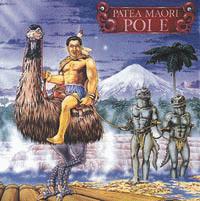
Poi E is an album released by New Zealand Māori music group the Pātea Māori Club. In 1984, the Māori language title track "Poi E" topped the New Zealand pop charts for four consecutive weeks, and was that year's biggest selling single - outselling all international recording artists. The album also produced three other charting singles in New Zealand but did not chart itself until nearly three decades after its original release.

Best of Wildside is a 71 minute New Zealand compilation album featuring artists under the record label, Wildside Records, released in 1999. It appeared in the New Zealand's top ten compilation albums charts for eight weeks between 29 August and 17 October 1999, peaking at #3.
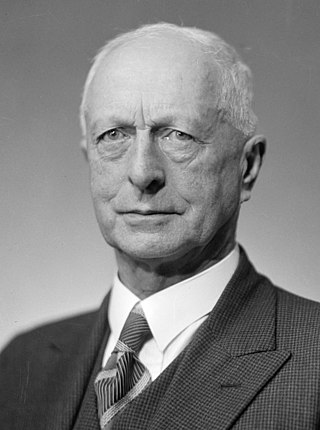
John George Cobbe was a New Zealand politician of the Liberal Party, United Party and the National Party.
DLT or Darryl Leigh Thomson, is a New Zealand hip hop DJ, music producer and composer as well as a visual artist. He was a founding member of Upper Hutt Posse (UHP). As a solo artist DLT issued two albums, The True School (1996) and Altruism (2000) – both peaked on the New Zealand albums chart top 20. His most successful single, "Chains" (1996), featuring vocals by Che Fu, reached number one on the New Zealand singles chart.

Murray Ernest Cammick is a New Zealand popular music journalist, photographer and record label founder. He has been a significant figure in New Zealand popular music since the late 1970s.

Edge of Winter is the sixth studio album by New Zealand singer-songwriter Sharon O'Neill. The album was released by Polydor in August 1990. The album marks O'Neill's last solo studio album of new material. All the songs were written by O'Neill or co-written with guitarist/keyboardist Alan Mansfield of Dragon, who is also her domestic partner. O'Neil and Mansfield had written tracks for Dragon including "Young Years" for their 1989 album Bondi Road. Mansfield also produced the album.
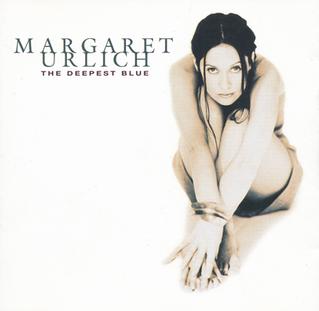
The Deepest Blue is the fourth solo album by Margaret Urlich, released in July 1995 through Columbia Records. In November 2010 the album was re-released in digital form on various online music retail websites, including iTunes in New Zealand and Australia.
Universal Music New Zealand is the New Zealand subsidiary of the Universal Music Group (UMG), the world's largest music company. Universal Music New Zealand's corporate headquarters are located in Auckland, New Zealand.
Tītī tōrea is a Māori game which uses wooden sticks, known as tītī, and is usually played by two or more players by throwing these sticks to each other. It is often performed in Polynesia, as well as in the Polynesian Cultural Center in Honolulu, O'ahu, Hawai'i, United States. It is a game involving sticks and a beat of three usually. Some tītī tōrea are used to practice hand eye coordination and to improve male warriors.
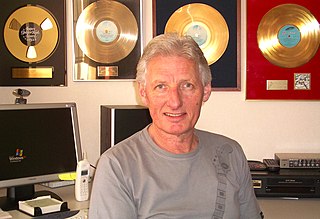
Glyn Tucker is a New Zealand musician and music producer. Following an early career as a singer/songwriter in The Gremlins (1965–1968), he founded Mandrill Recording Studios in Auckland in 1975, and produced and engineered hundreds of New Zealand songs in the late seventies, eighties, and early nineties.
RTC is a New Zealand record label which licensed recordings from overseas Independent labels in the United States and in the United Kingdom.

Founded in the early 1970s, Mandrill Studios was a recording studio in Parnell, a suburb of Auckland, New Zealand. Many of New Zealand's prominent artists had their work recorded there. The Mandrill record label grew out of the name of the studio. The studio stopped recording in October 1992.
John McCready was the founder of the RTC record label in New Zealand. He was also the general manager of CBS Records, New Zealand.

"How Do You Talk to Boys" is a song by New Zealand singer and songwriter Sharon O'Neill. The song was released in August 1980 as the final single from the international edition of her second studio album Sharon O'Neill titled Words (1980).
Pātea Māori Club is a New Zealand cultural group and performance act formed in the South Taranaki town of Pātea in 1967 as the Pātea Methodist Māori Club. In 1983, the group began to release Māori-language pop and hip hop music, produced by Dalvanius Prime with lyrics by Ngoi Pēwhairangi. Their first single, "Poi E", reached number one on the New Zealand top 50 singles chart in 1984.
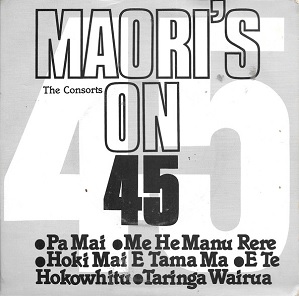
"Maoris on 45" is a 1982 novelty single by New Zealand group the Consorts, produced by Dalvanius Prime. Inspired by the Dutch hit single "Stars on 45" concept, the song was a Māori language medley of songs performed on the guitar, including "Pā Mai", "Me He Manu Rere", "Hoki Mai e Tama Mā", "E te Hokowhitu" and "Taringa Wairua". The song was a hit in New Zealand, reaching number four.
References
- ↑ "Wildside [electronic resource]". National Library of New Zealand . Retrieved 10 September 2023.
- ↑ Reekie, Trevor (20 August 2023). "Feature - Moments Like These: Murray Cammick". NZ Musician. Retrieved 10 September 2023.
- ↑ Shute, Gareth (7 May 2015). "Wildside Records". AudioCulture. Retrieved 10 September 2023.
- ↑ "Wildside Records". Discogs. Retrieved 10 September 2023.